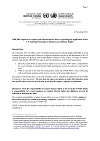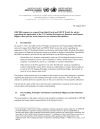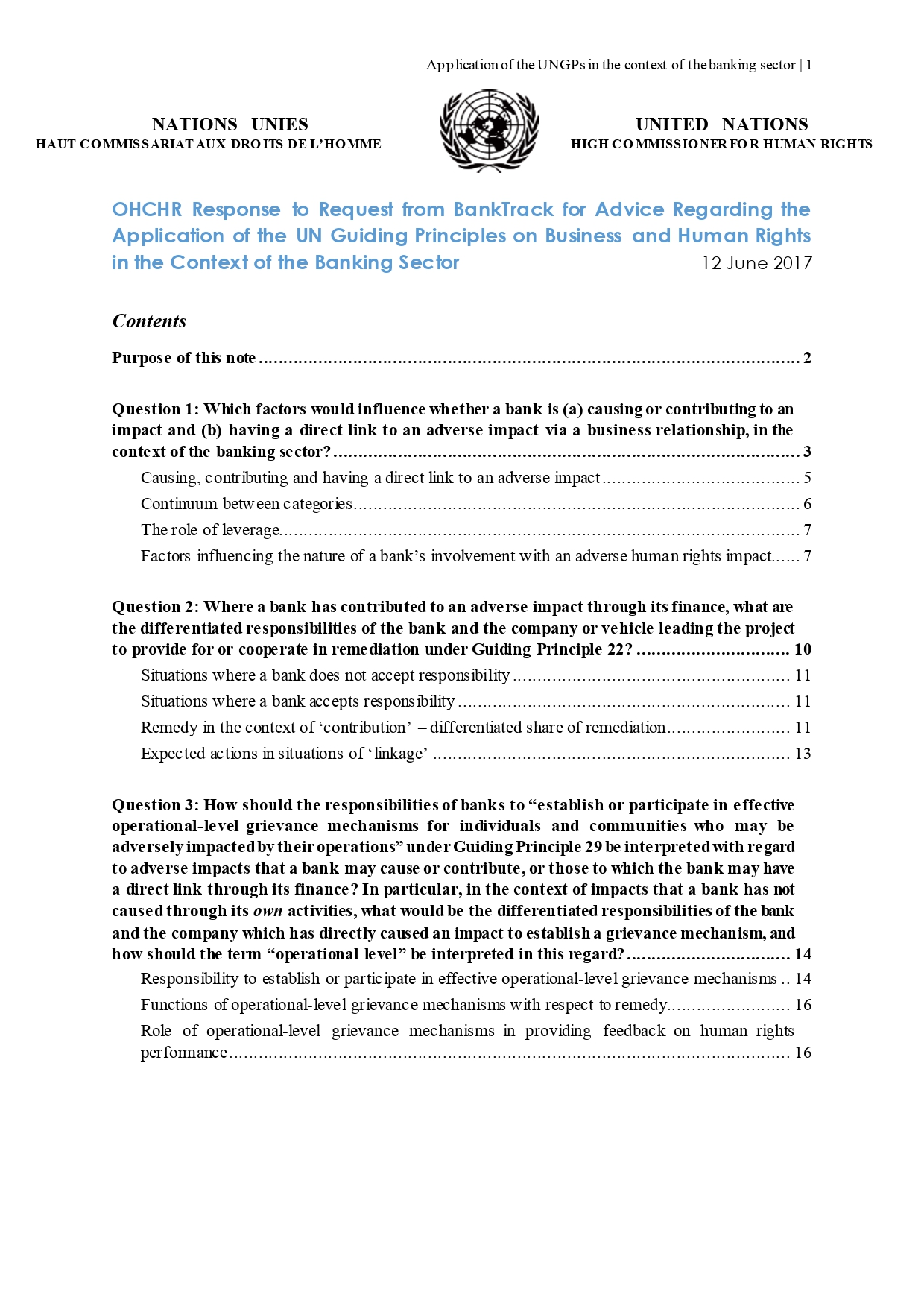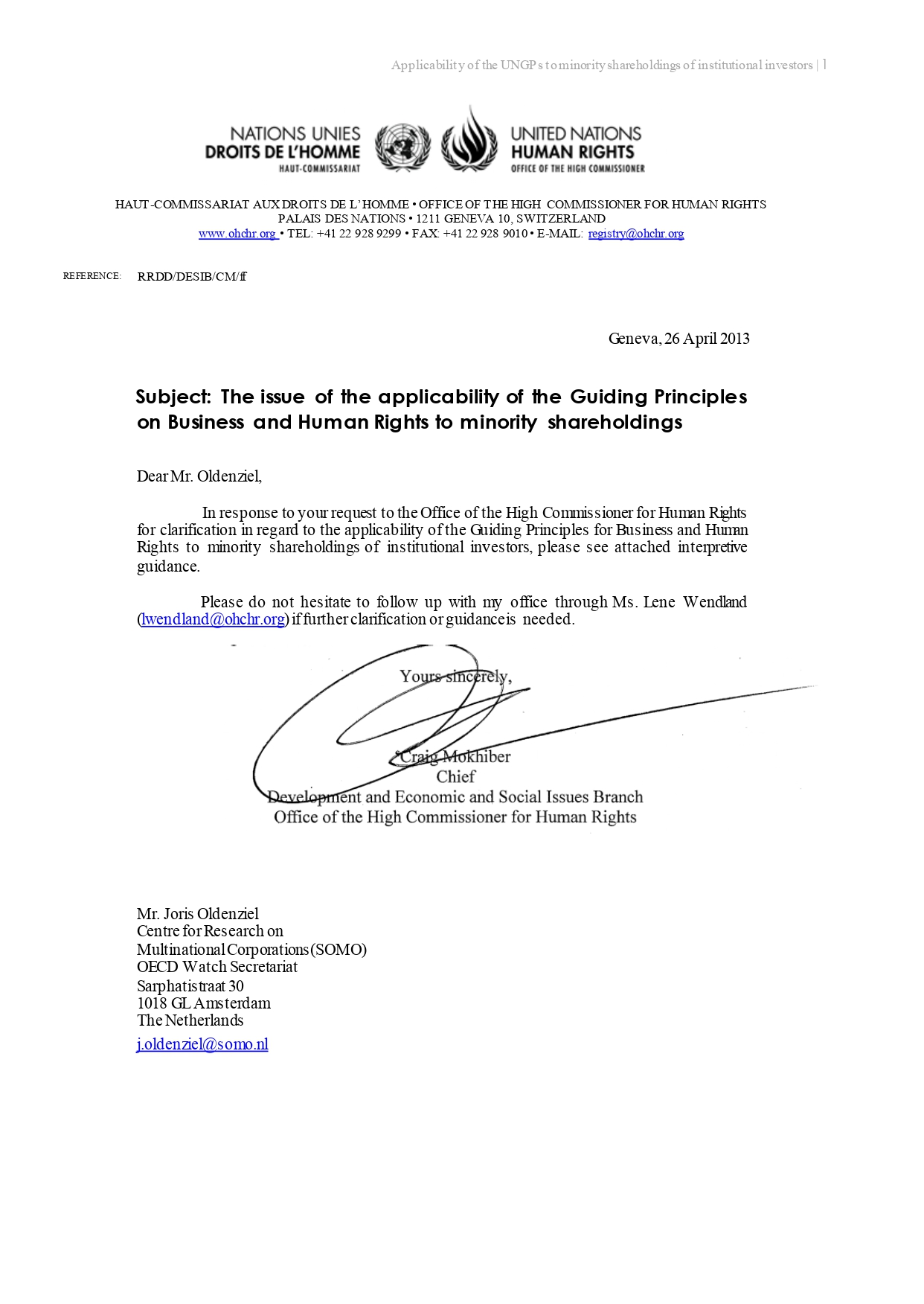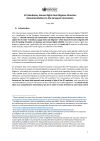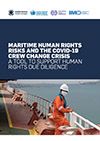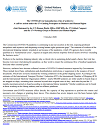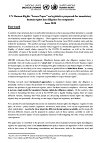Publications and resources
OHCHR and business and human rights
Resources to aid the interpretation of the Guiding Principles
The resources below were developed by, or in coordination with, UN Human Rights to provide further clarity on the meaning of the UN Guiding Principles on Business and Human Rights (UNGPs). Particular initiatives of the office on business and human rights (e.g., the Accountability and Remedy Project and the B-Tech Project) have resulted in more-detailed guidance on particular aspects of the UNGPs; please visit the webpages of the respective initiatives to find more information. Resources on accountability and remedy may be found via the ARP portal.
Please visit our international standards page to find other important materials on business and human rights.
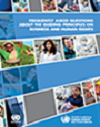 Frequently Asked Questions on the Guiding Principles on Business and Human Rights (2014)
Frequently Asked Questions on the Guiding Principles on Business and Human Rights (2014)
This publication with frequently asked questions explains the background and the contents of the UNGPs and how they relate to the broader human rights system and other frameworks. It aims to help both practitioners and newcomers to navigate and understand the Guiding Principles.
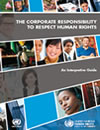 The Corporate Responsibility to Respect Human Rights: An Interpretive Guide (2012)
The Corporate Responsibility to Respect Human Rights: An Interpretive Guide (2012)
This interpretive guide focuses on the Guiding Principles that address the corporate responsibility to respect human rights. It was developed in full collaboration with the former Special Representative of the Secretary-General on the issue of human rights and transnational corporations and other business enterprises.
This interpretive guide provides additional background explanation on the principles of the access to remedy pillar of the Guiding Principles so as to support a full understanding of their meaning and intent. It aims to equip all actors, whether specialist or non-specialist, with the knowledge and insights needed for more productive engagement and advocacy in relation to access to remedy for business and human rights harms in a wide range of contexts. This is an advance version of the guide; a professionally designed and translated version of the guide will be published as soon as it is ready.
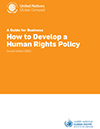 Guide on How to Develop a Human Rights Policy (2015)
Guide on How to Develop a Human Rights Policy (2015)
This guide provides instruction on how businesses can develop and implement a human rights policy within their companies, aligned with the UN Guiding Principles on Business and Human Rights. An earlier version of this guide was published in 2011 (also available in español).
 Human Rights Translated 2.0 - A Business Reference Guide (2016)
Human Rights Translated 2.0 - A Business Reference Guide (2016)
Human Rights Translated 2.0 - A Business Reference Guide is an easy-to read handbook for business using real-life case studies, illustrating how human rights are relevant in a corporate context and how to manage human rights issues. The current edition was updated in 2016 to include the latest legal developments and recent case studies. An earlier version of this guide was published in 2008.
This note provides interpretive advice regarding (1) the extent to which a tech company should conduct human rights due diligence on how its software is used and by who; and (2) what is expected of States and municipalities when contracting with a tech company which may be involved in human rights abuses.
This note provides advice and clarification on the concept of business relationships in the context of nominee shareholdings, and how financial institutions should meet their responsibility to respect human rights in such cases.
This note provides advice and clarification on the factors that would influence how a bank is involved with an adverse human rights impact (i.e., cause, contribution, and direct linkage); the responsibilities of banks with respect to remediation in situations where a bank has contributed to an adverse human rights impact; and the role of operational-level grievance mechanisms in this context.
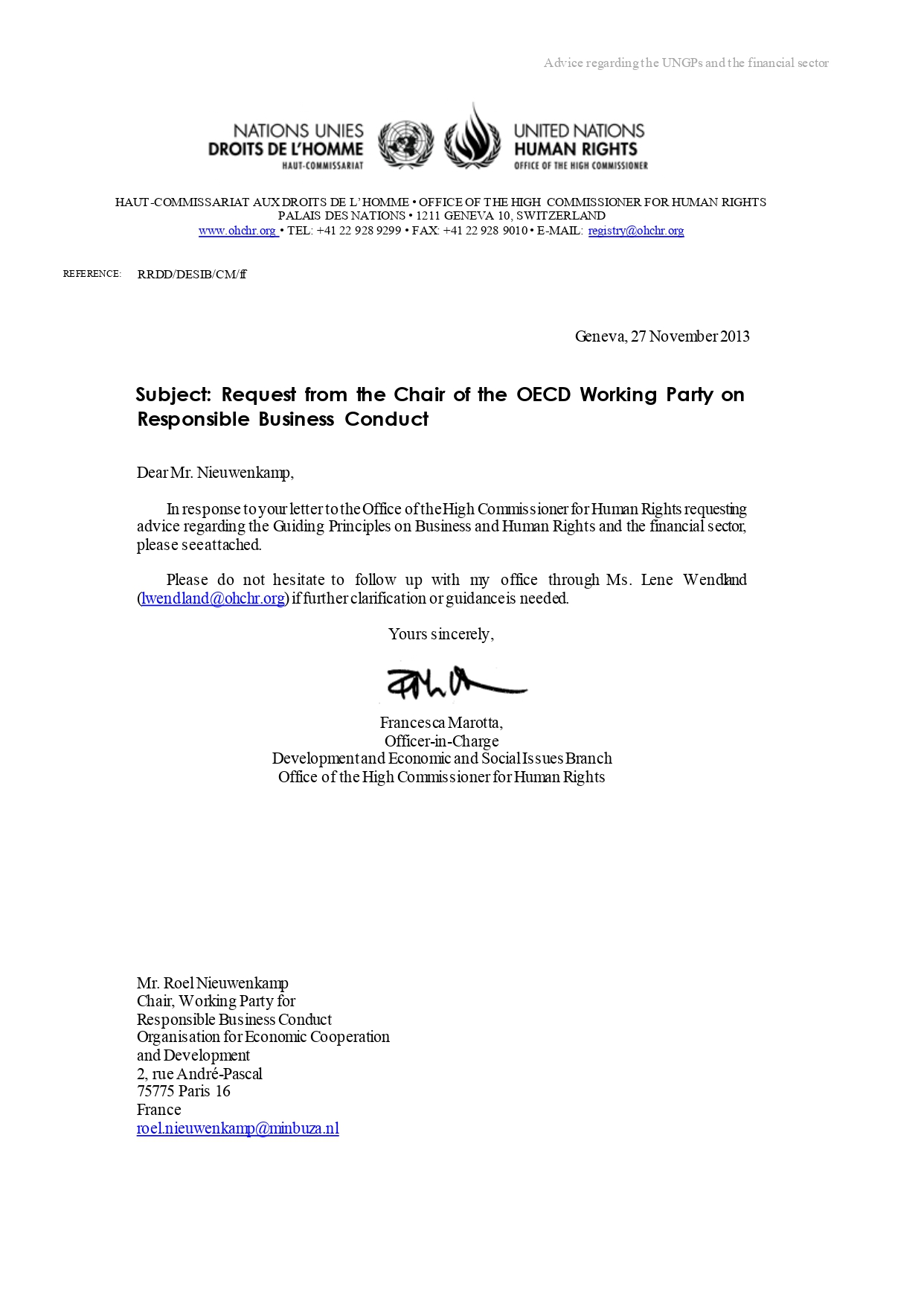 OHCHR advice to the OECD on the application of the Guiding Principles to the financial sector (2013)
OHCHR advice to the OECD on the application of the Guiding Principles to the financial sector (2013)
This note provides advice on what is meant by being “directly linked” and the extent to which minority shareholders and investment in sovereign bonds are covered by this provision.
This note provides guidance as to whether the UNGPs apply to institutional investors holding minority shareholdings, whether such shareholdings constitute a "business relationship," and the role of leverage in such circumstances.
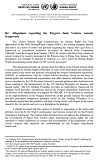 Opinion issued by OHCHR in response to letters regarding the Porgera remediation framework (2013)
Opinion issued by OHCHR in response to letters regarding the Porgera remediation framework (2013)
This note provides guidance on operational-level grievance mechanisms, the issue of waivers of legal claims, the nature of remedies, and stakeholder engagement.
Other relevant resources
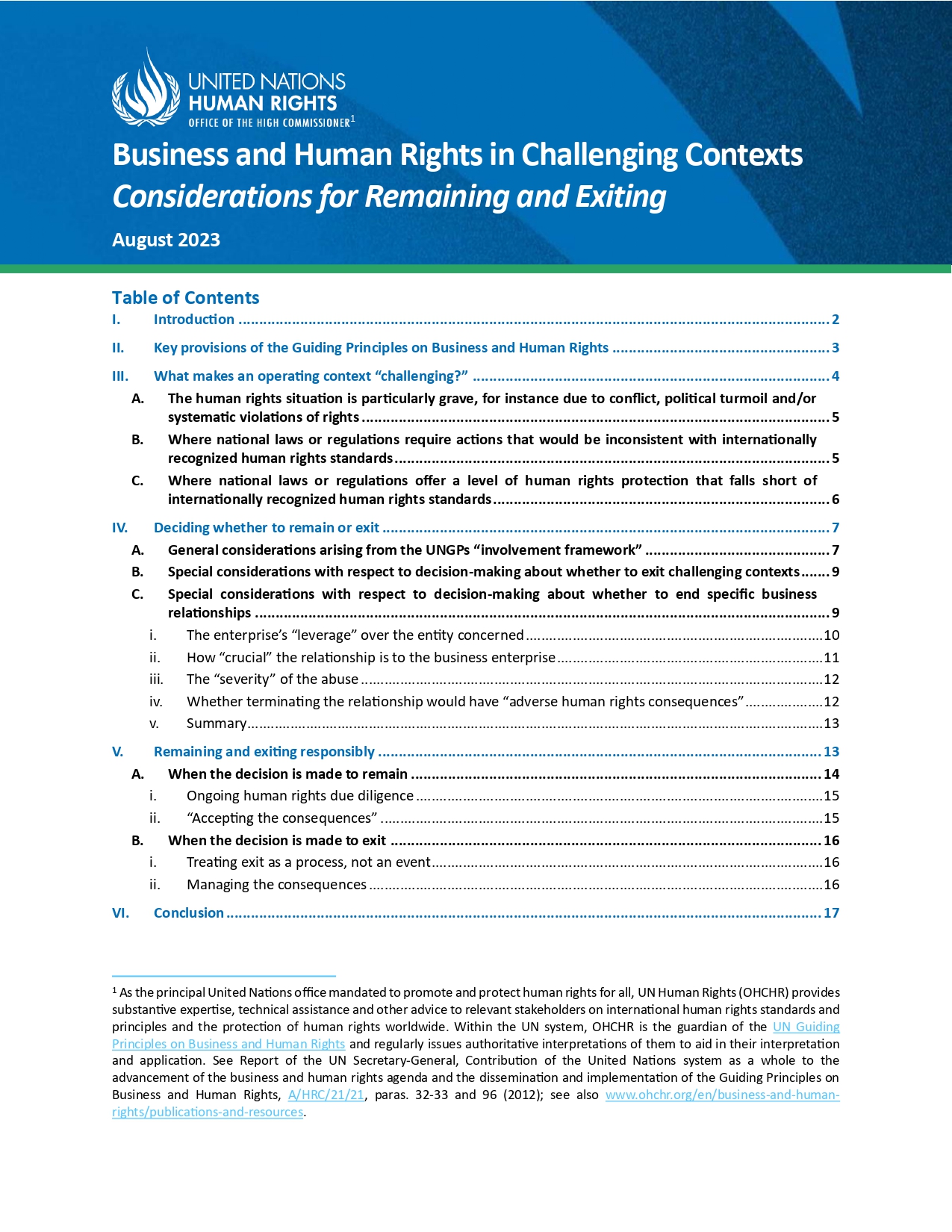 Business and Human Rights in Challenging Contexts: Considerations for Remaining and Exiting (2023)
Business and Human Rights in Challenging Contexts: Considerations for Remaining and Exiting (2023)
This note provides clarifications concerning the expectations of business enterprises according to the UNGPs regarding whether and how to remain in or exit challenging operating contexts or business relationships.
 Sustainable Global Supply Chains: G7 Leadership on UNGP Implementation (2022) (executive summary)
Sustainable Global Supply Chains: G7 Leadership on UNGP Implementation (2022) (executive summary)
This report focuses on the efforts of the G7 to promote sustainability, human rights and environmental protection in global supply chains.
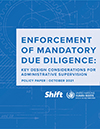 Enforcement of Mandatory Due Diligence: Key Design Considerations for Administrative Supervision (2021)
Enforcement of Mandatory Due Diligence: Key Design Considerations for Administrative Supervision (2021)
In the context of the debate around mandatory human rights and environmental due diligence, Shift and OHCHR have come together to explore how administrative supervision can complement civil liability for harms in the effective enforcement of due diligence requirements, and suggest practical guidance for policy-makers to avoid pitfalls in other areas of corporate regulation.
This note provides recommendations to the European Commission regarding mandatory human rights due diligence in light of the European Parliament's resolution of 10 March 2021 on corporate due diligence and corporate accountability. The note focuses in particular on issues connected with the translation of human rights due diligence into a binding legal standard, and on corporate accountability and remedy.
 OHCHR and Global Compact e-Learning Course on Business and Human Rights (2021)
OHCHR and Global Compact e-Learning Course on Business and Human Rights (2021)
This e-learning course will help businesses understand what human rights means to business and how they can respect and support human rights in accordance with the Ten Principles of the UN Global Compact and the UNGPs. It is an update of a 2010 version of the course.
 Trailhead training module on the UNGPs (2021)
Trailhead training module on the UNGPs (2021)
This online training module provides a quick and accessible introduction to the business and human rights agenda. By working through the module, one can explore the connections between human rights and business, get to know the UNGPs, and learn how businesses can respect human rights.
This tool is intended to help businesses uphold their responsibility to respect human rights in the maritime sector during the COVID-19 related crew change crisis through urgent measures. The tool is a response to the ongoing crisis concerning crew changes and is not intended to provide comprehensive guidance on human rights due diligence for the maritime sector.
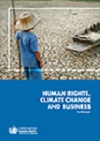 Key Messages on human rights, climate change and business (2020)
Key Messages on human rights, climate change and business (2020)
This document explores the main legal and policy implications of the UNGPs for States and businesses with regard to human rights and climate change and concludes with some of OHCHR’s key advocacy messages on this issue.
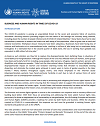 Business and human rights in times of COVID-19 (2020)
Business and human rights in times of COVID-19 (2020)
This note provides a brief and non-exhaustive overview of some key considerations and recommendations for action based on the UNGPs’ three-pillar “Protect, Respect and Remedy” framework in the context of COVID-19. At the end of the note are some useful resources developed by other actors to further guide action.
In this joint statement, OHCHR, UN Global Compact, and the UN Working Group on Business and Human Rights address the situation of hundreds of thousands of seafarers stranded at sea due to Government-imposed measures to counter COVID-19, and discuss the respective roles of States and business in line with the UNGPs. The joint statement was echoed in an Office press briefing.
This paper seeks to unpack some of the main choices, complexities and policy trade-offs that policy-makers and legislators considering mandatory human rights due diligence legislation will be confronted with, and covers some of the advantages and disadvantages of different courses of action. A shorter document on key considerations provides a summary of some of these points, with a focus on the EU context.
The Standards of Conduct for Business on Tackling Discrimination against LGBTI people provide specific guidance on how companies can align their policies and practices in the workplace, marketplace and communities in which they do business, with international standards on the human rights of LGBTI people.
This self-study was developed for State and commercial representatives, civil society, lenders, and investors to learn about what it means to integrate the protection of, and respect for, human rights into State-investor contracts. This is a 90-minute self-study that covers the development of the guide, the ten key principles for responsible contracts, their key implications, a negotiators’ checklist, and practice examples.
This short document summarises the content of the UN Guiding Principles and describes the mandate of the UN Working Group on Business and Human Rights.

